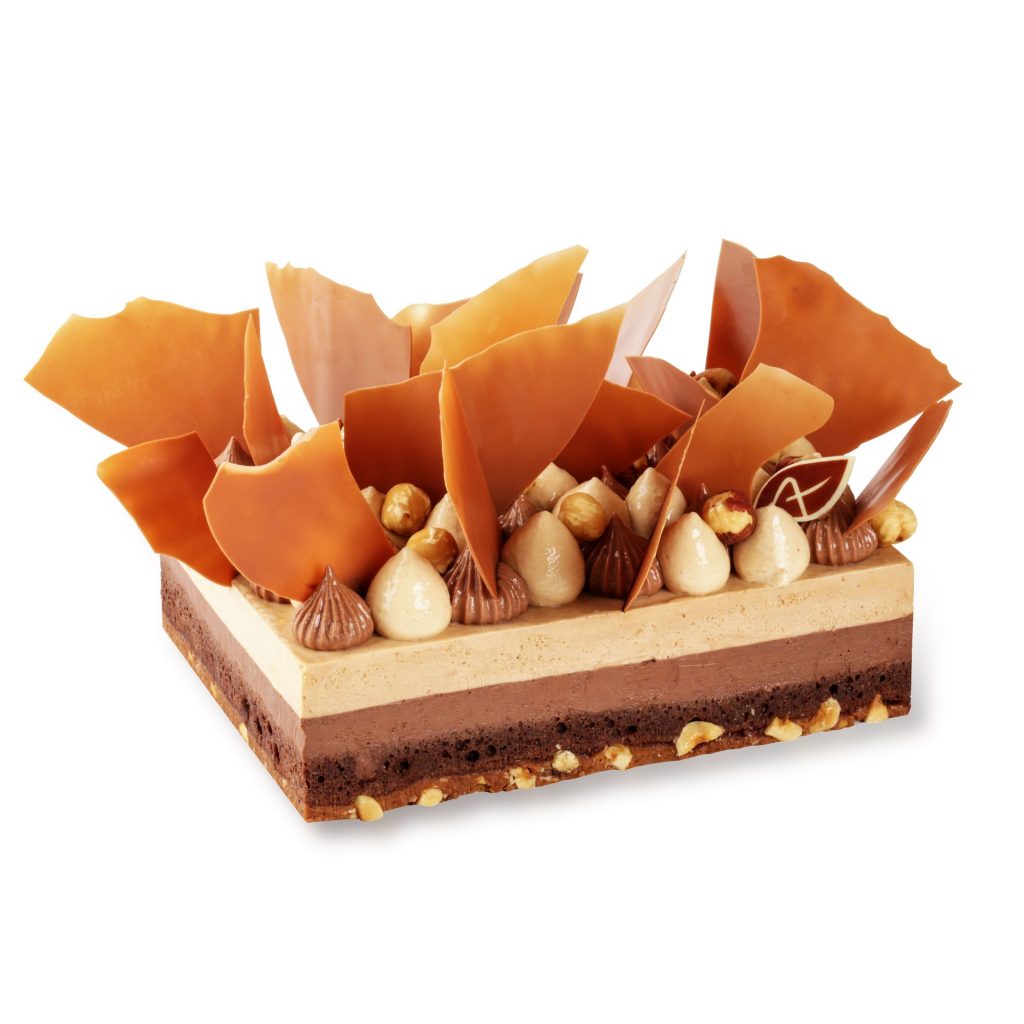Extremely fond of his home region, Patrick and his wife Nathalie opened their first boutique along the shores of Lake Annecy in 2004, and then a second in 2012 in his childhood home of La Clusaz. He joined Relais Desserts in 2011.
For Patrick, who grew up in a rural area, protecting and caring for the environment comes as second nature. His eco-designed laboratory is made with environmentally-friendly materials and equipped with a water recycling system. For day-to-day operations, he pays careful attention to avoid waste by making the most of every last resource. It is this conscientiousness that motivated him to gather his team and share with them his misgivings about all of the consumables they use in the lab.
The disposables developed to make a pastry chef’s job easier and more time efficient create a lot of unnecessary waste. By reorganizing how they work in the lab, this waste can be significantly reduced, and even eliminated.

Patrick needed to share this realization with his team to ensure that everyone become involved and contribute to this change.
Tackling the question, “How can we reduce the use of consumables in the laboratory?” has turned into a team project where everyone shares their thoughts. Several ideas have been implemented. While some have become routine, others are in the process of being integrated into the lab’s workflow. As of now, no one would ever think of returning to the old way of doing things.
For example, the team looked for an alternative to the plastic wrap used to cover desserts. They replaced it with a glaze (that protects like plastic wrap) whenever possible. While this means more work, it pales in comparison to the satisfaction felt by standing up for one’s convictions.

Pastry bags are another great example. Patrick’s staff has reduced their use of disposable pastry bags by 75%, replacing them with reusable silicone bags. While this requires a bit more time to reorganize and follow a strict cleaning, disinfection, and drying protocol, it all comes down to setting the right priorities.
Reducing waste and the use of disposables has transformed into a shared mindset in Patrick Agnellet’s laboratory. Building awareness has changed everyone’s behavior and overall approach, resulting in other benefits such as reducing paper towel use. Where people once grabbed way too many sheets by habit, everyone quickly learned that one sheet will more than suffice to maintain proper hygiene.
In addition, everyone now uses a pastry scraper with much greater care to waste as little dough as possible and to limit the amount of water used when cleaning bowls.
Every gesture, however small, counts since when added up it means considerably reducing the use of disposable plastics and the overall amount of waste. While the financial savings also add up, this change in behavior and greater awareness extends beyond the lab, and these best practices, once implemented in the professional sphere, end up being used by everyone in their personal lives.
For Patrick this is nothing new; a quick trip back in time to apply what he originally learned as an apprentice clearly has meaning today.
As the head of the company, Patrick is well aware of his responsibility to his staff. Beyond professional expertise, he has succeeded in passing on his know-how as a chocolate maker and a pastry chef as well as his personal commitment to being environmentally responsible. Today, his staff is proud to be a part of a team taking action for the environment at work and at home, while maintaining the same high standards when it comes to making their delicious desserts.
Marie Loones for relais Desserts
